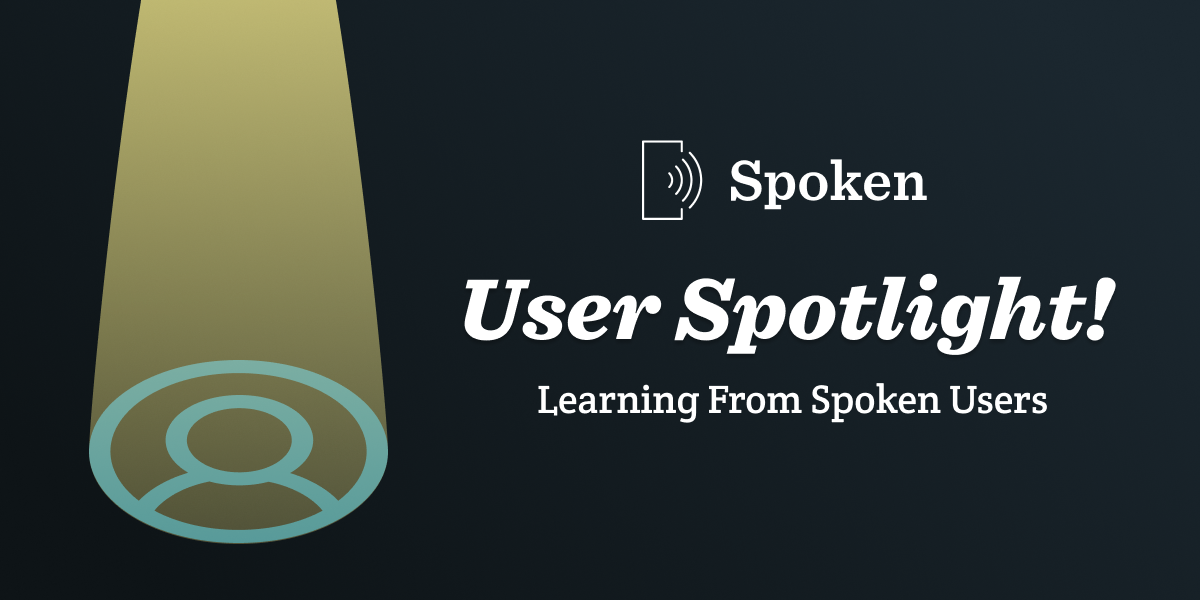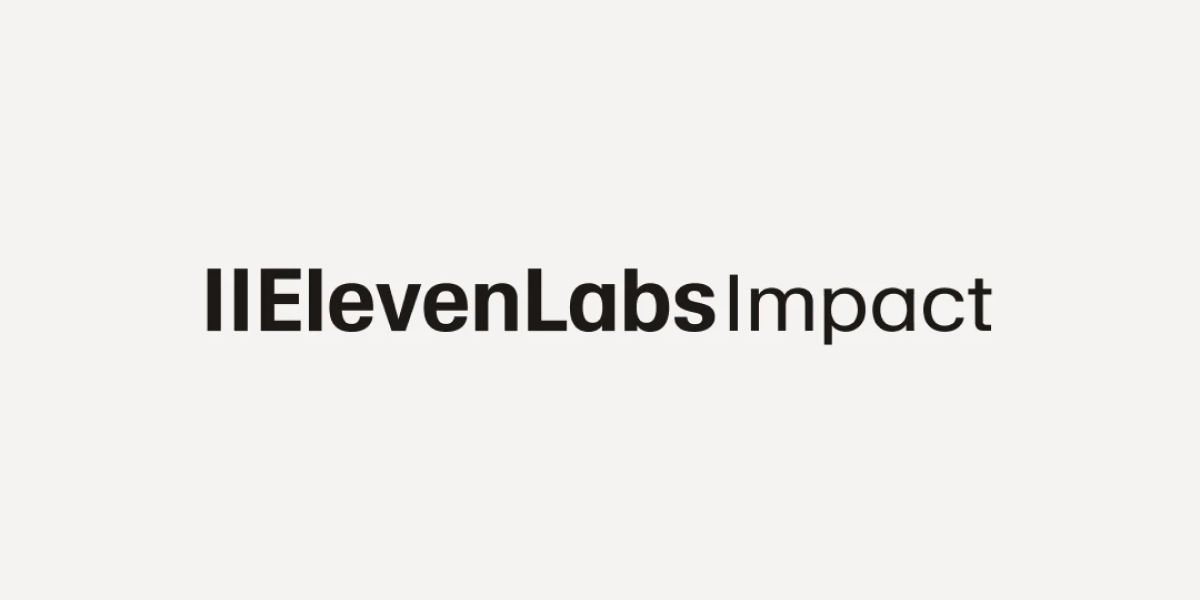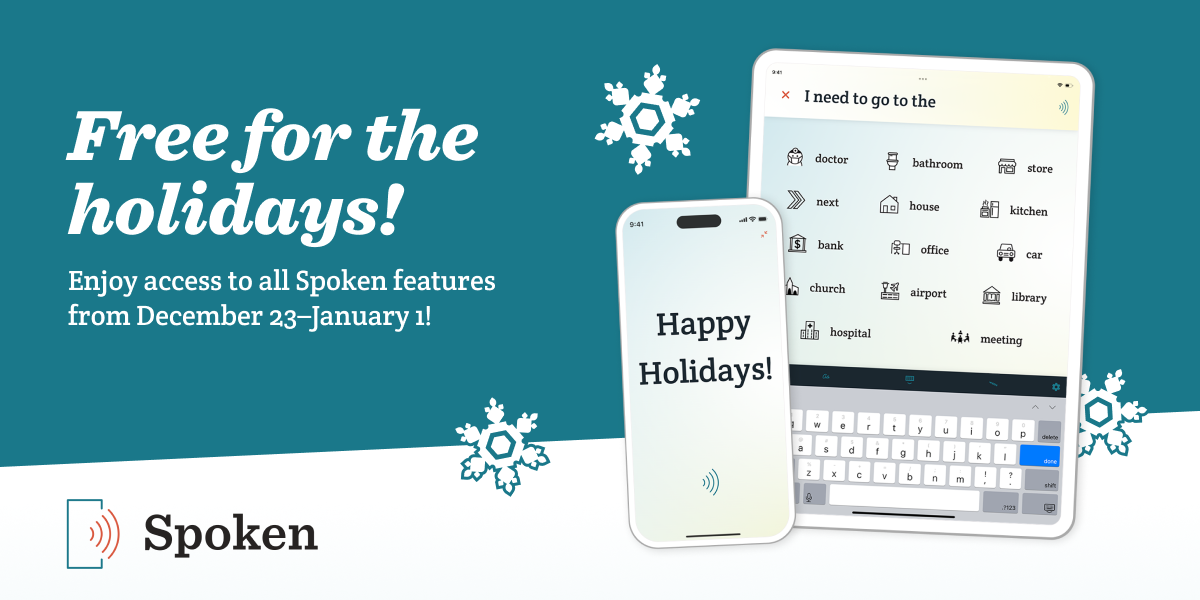User Spotlight: Violet's Journey with Spoken AAC

A while back, we had the privilege of interviewing Violet, one of our awesome users, who generously shared their personal journey overcoming speech challenges and discovering augmentative and alternative communication (AAC) as an adult. It’s a story that should resonate with any AAC users who discovered communication tools later in life. In this blog post, Violet opens up about the challenges they’ve faced with communication, the impact AAC has had on their life, and the unique features that set Spoken apart as a communication aid.
The Interview
Q: Please tell us a bit about yourself.
My name is Haze, but everyone calls me Violet! That was originally my digital pen name, but everyone started using it for me both online and offline, to the point where my name in British Sign Language has become the sign for “violet!”
My place of origin is a bit tricky to say because I’ve traveled around a lot, but if I had to pick one place to call home, it would be Las Vegas. It feels like home to me, even though I’ve only spent about five years of my life there!
I didn’t always have speech difficulties, they really only started to present themselves in my early teens, when I began to experience seizure-like events. These events have sadly worsened over the years, building up to a point in 2022 where I had a cluster of them so bad I ended up having muscle convulsions as a symptom for the first time. It was a scary wake-up call that I needed to take whatever was happening to me seriously. Since then, I’ve been fortunate enough to get into a good medical system, running tests and seeing neurologists. I’m very grateful to have qualified for medical financial assistance. By now I would have a bill so large it would take me a decade to pay off without help.
At this point, everyone is saying it looks like epilepsy. If it can be controlled remains to be seen, but the part that matters to this interview is the verbal impact of these events. Both during and for several hours after an event, I am left unable to speak. I’ll try and try, but it feels like the wires are cut to my voice. It’s as if I can’t find the part of myself I’m supposed to use to make sound. Picture trying to reach out and grab something off a table, only to realize that you are missing your arm. You thought it was by your side, but it just disappeared (as arms are known to do). You feel like you should be able to do the thing you’ve done before, but when you go to try there’s nothing.
The frequency and duration of these events has increased over the years, to the point where it happens without any corresponding seizure. Before pursuing AAC, I would try to communicate during these times by using sign language or typing into someone’s phone, but these both have their limitations. Typing is slow and cumbersome in comparison to verbal communication, and it also adds a fair bit of friction when trying to do day-to-day activities like ordering food. Group conversations? Basically impossible. Signing, by contrast, is wonderful! It will always be my preferred method of communication. But with limited finances, I’ve only been able to have proper lessons once. While those lessons helped me quite a bit, the majority of my knowledge has come from bumbling my way through signs with those who exclusively sign, including my late partner, who was the person to give me my sign name. I’m fortunate that signing comes quite easily to me and I’ve had opportunities to learn, but that just isn’t the case for most people, which is the downside of this communication method. It only works if the people involved in the conversation know sign language too! For the majority of the time, these two methods just simply do not work. Trying to find the solution to this is where AAC came into play.
Q: How did you find out about Spoken?
I discovered Spoken through my own research. I needed something I could run on my phone. Standalone AAC devices fall short for me in three critical categories: ease of acquisition, portability/convenience, and cost.
I already own a powerful computer that I keep in my pocket everywhere I go, so I started looking for options that took advantage of that. Spoken stood out to me because it looked different compared to all the other “grid of words” utilities. While I do know that that style of AAC helps a lot of people, the learning curve is just too steep for myself and many others to learn without the direct aid of a costly speech pathologist.
Q: What was the process like searching for AAC apps?
A bit depressing, honestly! There are not that many options — fewer still that are being actively worked on by developers anymore, and next to none that are trying to bring new innovations into the AAC world! My process included looking for any recommendations I could find, and trying every app available to use without an upfront paywall.
Q: How do you use Spoken?
While I have found Spoken to be helpful in several conditions, it unfortunately falls short of being usable in every situation I encounter for the time being. My current primary use cases are if I have a few simple sentences I need quickly and audibly delivered, or in conditions where I couldn’t message people if I tried (either due to situational impracticality or being in a place without any internet access whatsoever). I hope that as development continues, Spoken will become the best solution for more and more situations.
Q: What do you like about Spoken?
I like its promise. Spoken has the potential to be different, to completely democratize AAC for people all around the world. It removes the need for both expensive hardware and education, reducing the learning curve to something just about anyone could pick up and use.
What it lacks in immediate perfection, I believe it makes up for in its dedication to continued development. It is actively being improved upon, unlike essentially all other apps I’ve found, which see only upkeep at best and have been abandoned at worst. The fact that Spoken is different in this critical area brings me hope.
Q: How is Spoken different from other AAC apps you have encountered?
Spoken does away with the grid of words, instead believing that the future of AAC rests in the hands of AI. Spoken’s goal is to intelligently predict what its user is trying to say, presenting a list of words [that will likely be] desired next.
It allows for both typing and handwriting as ways of guiding itself in the correct direction as needed, but with the long-term goal being a platform that learns the way you speak and the words you use — not just in general, but also in specific situations like in dining or medical environments.
This is exactly the sort of thing I’ve been hoping to see come out of the rapid onset of AI technology and I’m really glad to see it happening here within the world of AAC aids. This is an environment that could benefit greatly from this overlap of technology.
Q: Is there anything else you want people to know about Spoken?
While this is not specifically about Spoken, I’d like to raise awareness about the landscape of AAC — both aided (apps) and unaided (sign language) — in the world as of now. Communication is the single most important thing someone can have the ability to do. Nothing can be done without communication. It’s the universal conduit for pursuing health, self betterment, education, and improvements in the world as a whole. It lets us share in someone else’s joy and help others when they are in need. The ability to communicate is a fundamental right, and it is of the utmost importance to ensure this ability is something all people can have.
In light of this, it is especially tragic how difficult it can be for people with communication difficulties to get the help that they need. Learning sign language can be financially prohibitive, with cost reduction generally either being non-existent or limited to only to those who are deaf. For most people, their only option is online tutorials or learning from friends, neither of which are guaranteed to be successful. Prerecorded tutorials lack live feedback or adjustments for learning styles, and most people simply do not have anyone in their life who is both able and willing to teach. AAC devices can also be equally cost prohibitive — often requiring the help of a medical professional to even acquire — and many have such a steep learning curve that they are completely impractical to learn and navigate without the help of a speech pathologist.
There is a lot going on in the world right now, so it’s easy for those of us with communication difficulties to be overlooked, but it is an issue that impacts many lives. Strokes, traumatic brain injuries, Alzheimer’s, Parkinson’s, cancer, multiple sclerosis, cerebral palsy, damaged vocal cords, paralysis, autism, muscular dystrophy, seizures, and psychological mutism are all things that impact the ability to speak. [Millions of people around the world are affected by these] and every one of them deserves the right to better their situation, regardless of their impairment’s cause or their financial flexibility and social status. It is equally important that we encourage education and awareness in this matter so people whose lives are impacted by this every day can be better understood and not left unseen.
Help Us by Reaching Out!
We would like to express our gratitude to our interviewee, Violet, for sharing their unique insights and experiences with us! We believe that there are countless more stories out there waiting to be shared, so if you or someone you know uses Spoken, we encourage you to reach out to us! Your experiences are essential in helping us understand the diverse ways in which people utilize AAC technology. By learning from your journeys, we can continue to improve and innovate.
About Spoken
Spoken is an app that helps people with aphasia, nonverbal autism, and other speech and language disorders.


